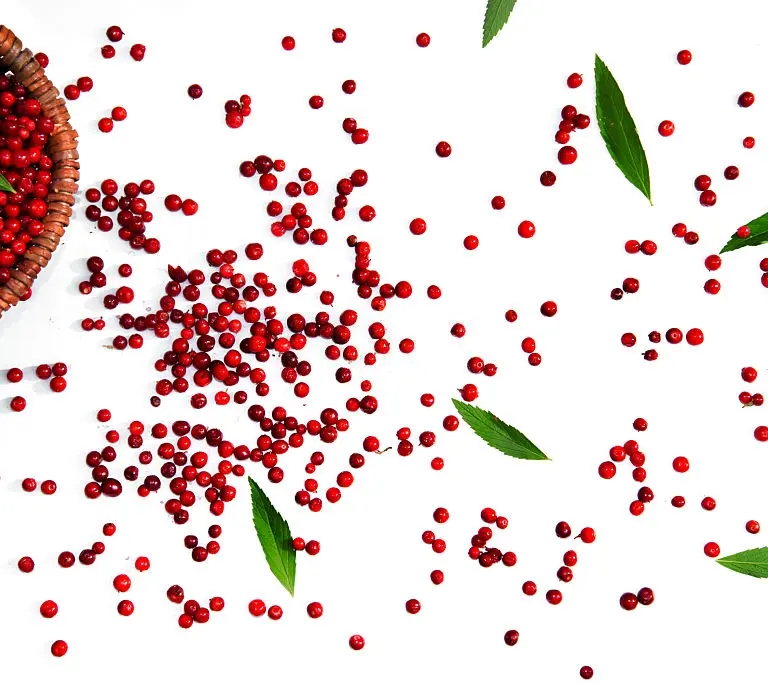Iodine is a type of mineral that’s naturally found in the earth’s soil and ocean waters. It is also found in some plant foods and in abundant quantities within iodized salt.
Iodine is essential for the regulation of body functions such as production of hormones necessary for fetal development inside the womb. Moreover, the availability of such hormones at normal levels in the mother’s body aids in preventing the child from being exposed to other problems later after birth.
How much iodine does the body need?
The recommended daily dose varies according to age and health status, but generally, an adult needs approximately 150 micrograms of iodine per day. However, during pregnancy and lactation, the body’s iodine demands increase.
Benefits of Iodine
- Improves Thyroid Health
Iodine plays an important role in the production of thyroid hormones that regulate the body’s metabolic rate and control heart function. To synthesize such hormones, the thyroid gland uses iodine. Therefore, low levels of iodine lead to problems in the thyroid gland such as hypothyroidism.
Sufficient amounts of iodine can easily be obtained by consuming certain foods, such as plants that grow in iodine-rich soil or by adding iodized salt to food. However, by such methods, the benefits of iodine when consumed in reasonable amounts may be exceeded, which may cause some problems. Therefore, it is not recommended to take extra supplements containing iodine without consulting a doctor.
- Reduces the Incidence of Goiter
The main cause of goiter is dietary iodine deficiency. Although this doesn’t happen in countries where iodine is easily obtained from the diet. Goiter, which is the enlargement of the thyroid gland, can usually be due to hyperthyroidism or hypothyroidism.
In this case, iodine deficiency goiter can be treated by focusing on iodine-rich foods or taking nutritional supplements under medical supervision.
- Management of Hyperthyroidism
When a patient suffers from hyperthyroidism, antithyroid drugs are the most common pharmaceutical treatment. However, if these drugs fail to treat the underlying issue, then an alternative would be using radioactive iodine, which works on destroying thyroid cells and thus reducing thyroid hormone production and secretion. The major drawback of this alternative is that it may lead to the destruction of other cells in the thyroid gland, consequently, the occurrence of hypothyroidism.
- Thyroid Cancer Treatment
Radioactive iodine is also an option for treating thyroid cancer. It is used as an adjuvant postoperative treatment. It works in the same way as treating hyperthyroidism by destroying cancer cells.
According to the American Cancer Society, the use of radioactive iodine increases the chances of survival for people with thyroid cancer.
- Fetal Nervous System Development
Pregnant women need more iodine (220 mcg per day) than the average person (150 mcg per day), as it plays an important role in the development of the fetal brain and nervous system. Some studies have found that children whose mothers suffered from iodine deficiency were more likely to have lower IQs as well as some other intellectual distortions.
An infant needs about 110 micrograms of iodine per day until they reach the age of six months. To avoid iodine overdose, parents should pay attention to the iodine-rich foods their infant consumes and consult a doctor regarding giving their infant additional iodine supplements during this period.
- Improving Children’s Cognitive Function
It’s quite fascinating how the positive effects of sufficient iodine intake during pregnancy may extend into the infant’s childhood. These effects include a reduced likelihood of developing intellectual disabilities. It is always essential that children get the iodine they need during childhood as well.
- Newborn Weight Improvements
While there is a correlation between the development of the fetal brain and the levels of iodine consumed by the mother during pregnancy, there also is a close correlation between iodine levels and the improvement of fetal weight during birth.
A credible study conducted on several pregnant women proved that taking tablets containing 400 micrograms of iodine per day helped in improving the fetal weight at birth and reducing goiter caused by iodine deficiency.
However, the study was conducted on women in developing countries who suffered from mineral deficiencies in general. To conclude, if there is no definitive iodine deficiency diagnosis in a pregnant woman, the addition of iodine does not improve the weight of the fetus, quite the contrary, it may cause many other problems.
- Treatment of Fibrocystic Breasts
Fibrocystic breasts is a condition which usually occurs in women of childbearing age in which non-cancerous and painful lumps form in the breasts.
Despite the promise that iodine supplements can aid in the treatment of this condition, it is always necessary to consult a doctor before taking these supplements since their harms may outweigh their benefit.
- Water Sterilization
Iodine is integrated in water disinfection when clean water sources are scarce (i.e. in cases of travel and natural disasters.).
Liquid iodine can be added at a rate of 2% per liter of water. Following that, if the water is significantly turbid, the iodine ratio can be raised to 10%. Another type of iodine can also be used in the form of tablets.
Despite the benefits of iodine in purifying water, there are many concerns about an increase in its concentration in the body, predisposing unwanted negative effects.
- Protection during Nuclear Disasters
The Centers for Disease Control and Prevention (CDC) recommends calcium iodide (KI), for thyroid gland protection from radiation injury.
Iodine is available in the form of hard tablets and in solution form. Although, the efficacy of iodine in such circumstances is not guaranteed to a large extent, as scientists believe that it causes digestive disorders and allergic reactions. It is also believed to affect the thyroid gland negatively in those who have preexisting thyroid gland problems.
- Infection Prevention
Iodine is also used as a topical antiseptic in the form of a solution. It prevents infection by killing the bacteria surrounding minor cuts and scrapes.
However, it’s worth noting that iodine should not be used in/for:
- Newborns
- Insect or animal bites
- Deep wounds
It should also not be used for a period exceeding 10 days without medical supervision.
Side Effects of Iodine
Iodine may cause some minor side effects, including:
- Nausea and vomiting
- Diarrhea
- Fever
- Burning in the mouth and throat
- Stomach pain
In severe cases, it may cause loss of consciousness.
As highlighted previously, iodine should not be taken without consulting a doctor in the case of preexisting thyroid conditions. Additionally, children and elderly are more susceptible to its side effects.







